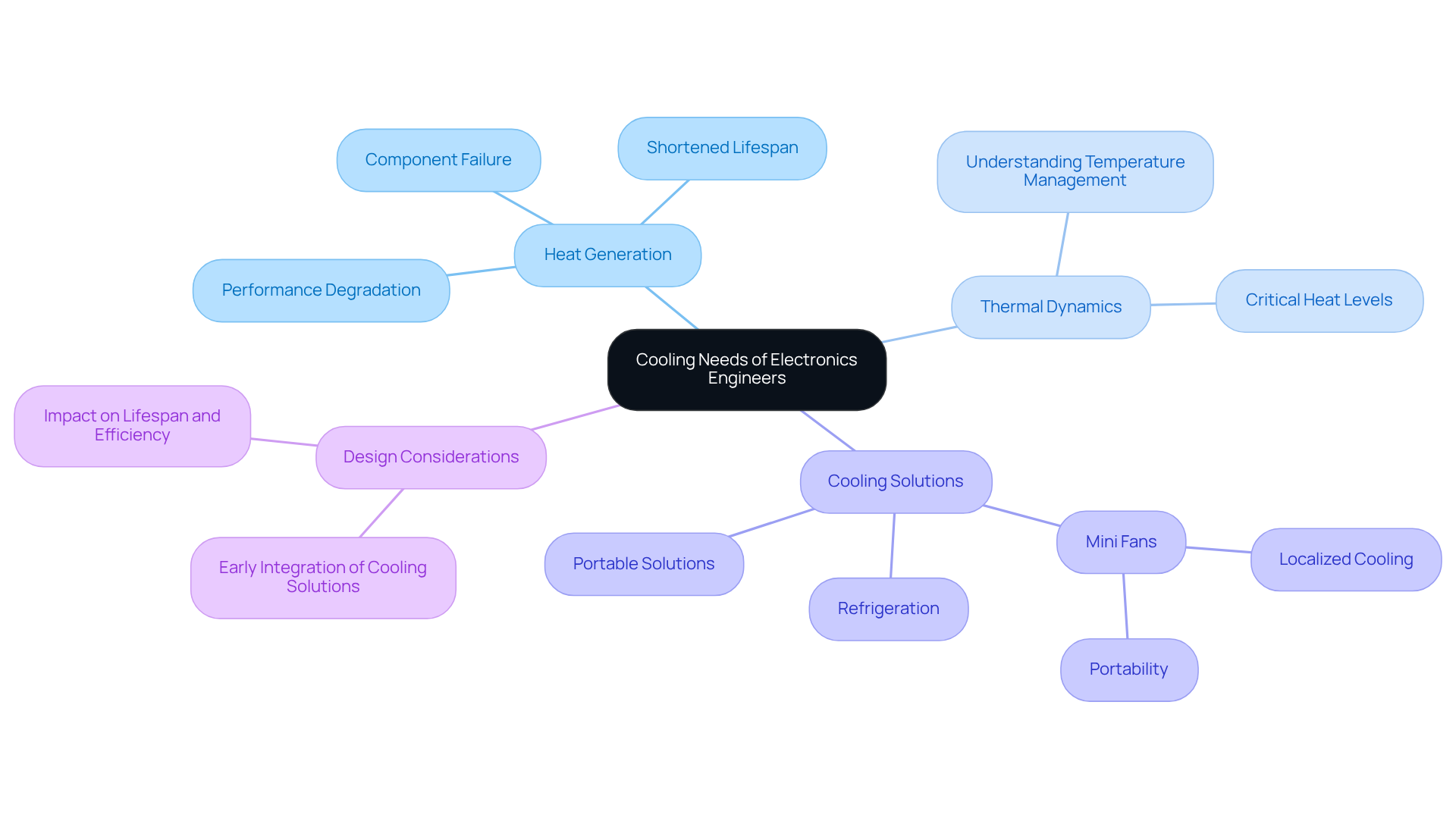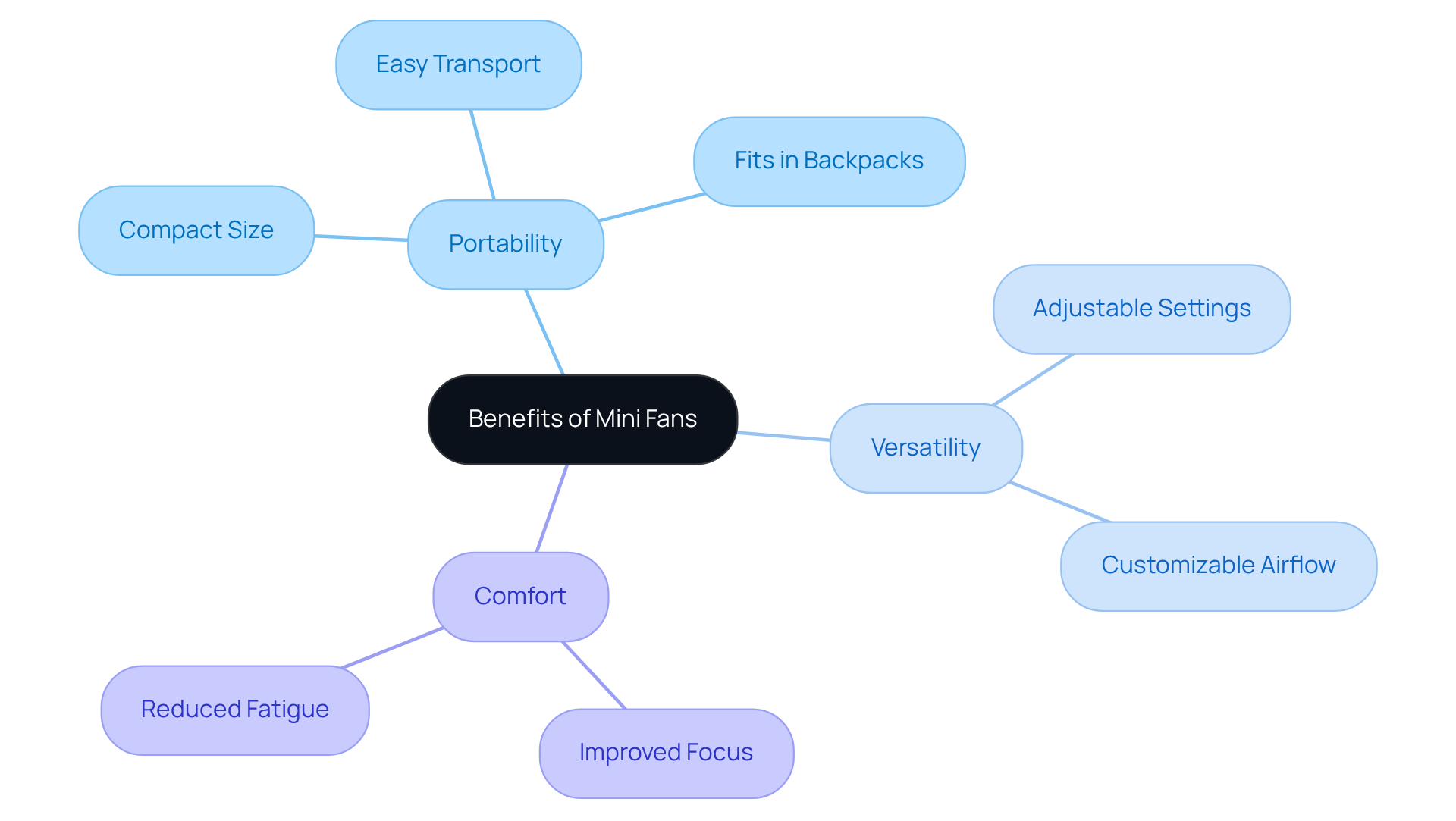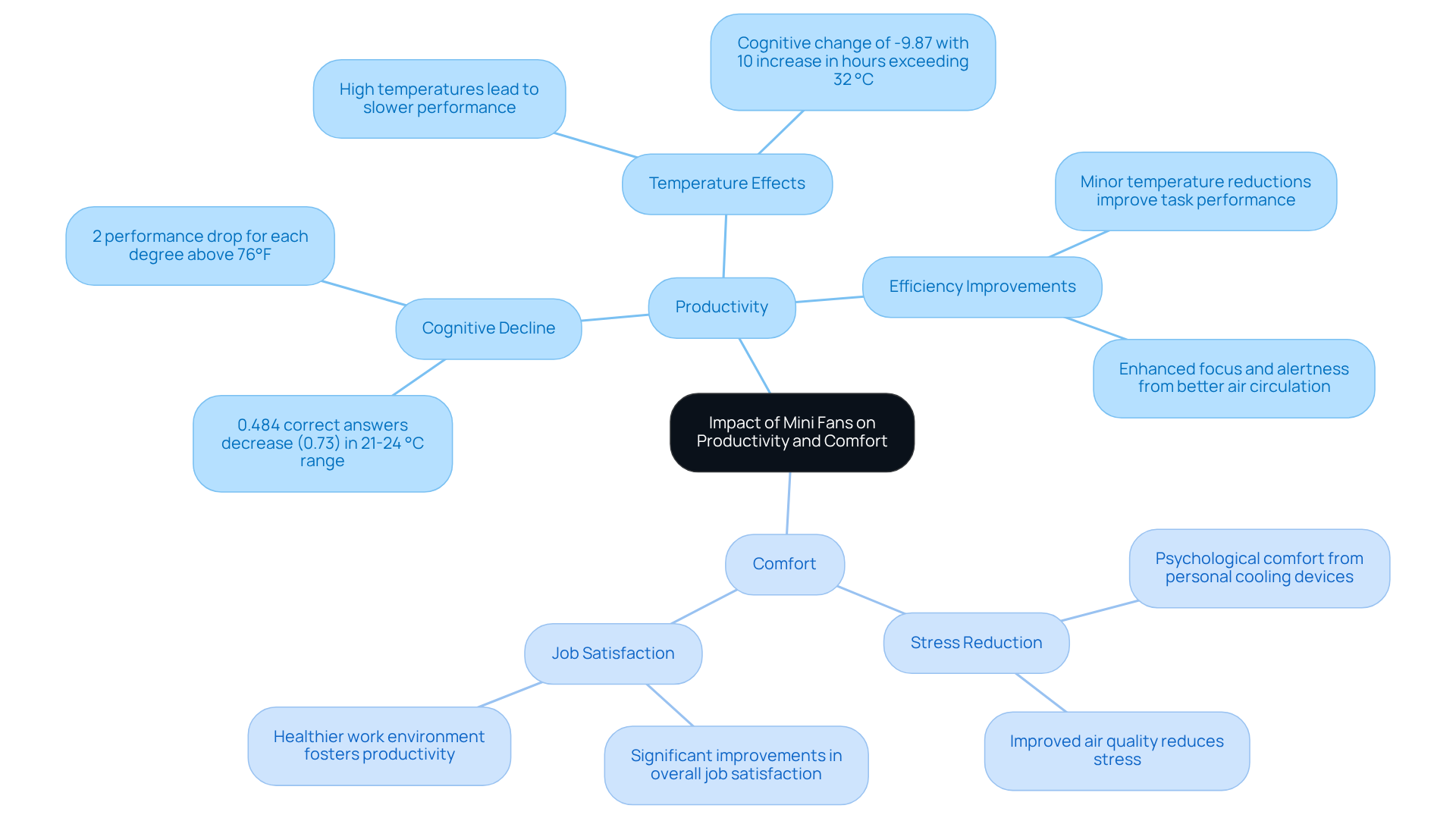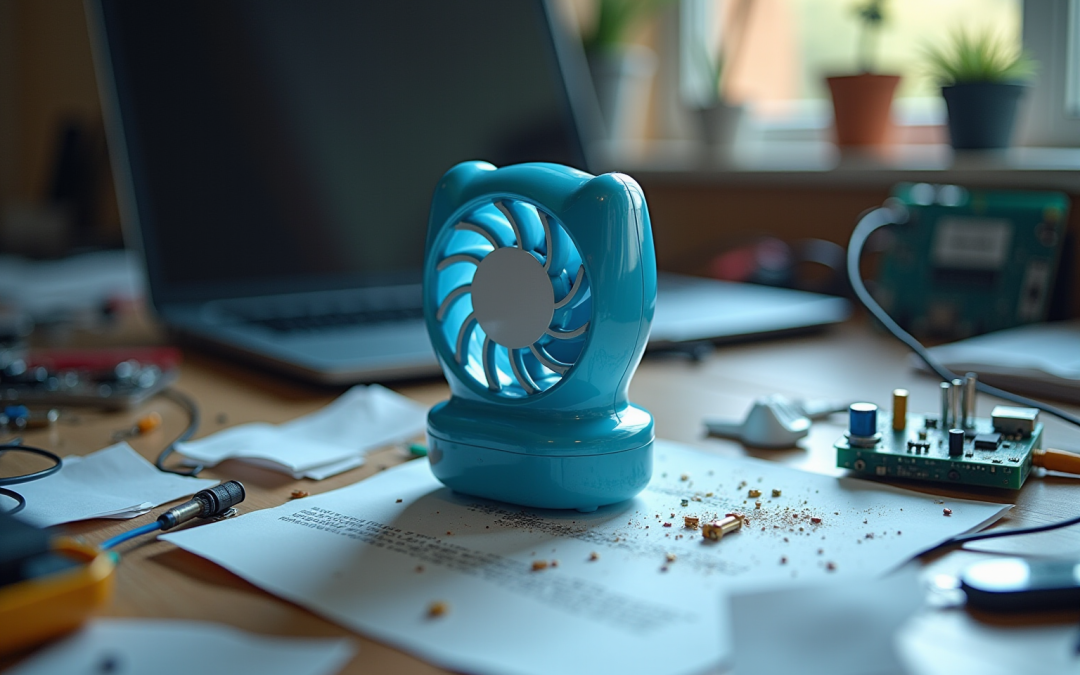Overview
Small mini fans significantly enhance comfort and productivity for engineers by delivering essential localized cooling that effectively mitigates heat-related cognitive decline. This localized cooling not only aids in maintaining focus during work but also addresses a critical issue faced in high-temperature environments. The article substantiates this claim by detailing how maintaining optimal temperatures can markedly improve task performance and job satisfaction. Research indicates that even slight reductions in temperature can lead to substantial increases in efficiency, underscoring the importance of such cooling solutions in the workplace.
Introduction
The relentless heat generated by electronic devices presents a formidable challenge for engineers, often resulting in decreased performance and potential component failure. In this context, small mini fans emerge as a practical and versatile solution, delivering localized cooling that can significantly enhance both comfort and productivity across various work environments. However, this raises an important question: how can these compact devices fundamentally transform the management of thermal dynamics and optimize workspaces for peak performance?
Understand the Cooling Needs of Electronics Engineers
Electronics engineers frequently encounter devices that generate substantial heat during operation, leading to performance degradation, shortened lifespan, and potential component failure. Understanding temperature management requirements necessitates exploring the thermal dynamics inherent in electronic systems.
For instance, processors and power management systems can reach critical heat levels without adequate refrigeration, making efficient thermal regulation crucial. Compact devices, like a small mini fan, present a practical solution by providing localized cooling that aids in maintaining ideal operating temperatures. This is particularly vital in compact workspaces where conventional temperature control methods may prove impractical.
The portability of small mini fans further enhances their utility, enabling professionals to deploy them across various environments—from laboratories to fieldwork—ensuring consistent performance and reliability in their designs.
As specialists in thermal dynamics emphasize, incorporating innovative temperature regulation solutions early in the design process is essential for improving the lifespan and efficiency of electronic components.

Explore the Benefits of Mini Fans for Portability and Versatility
Compact devices are designed with portability and adaptability in mind, making them ideal for professionals navigating diverse work environments. Their compact size facilitates easy transport, seamlessly fitting into backpacks or toolkits. This mobility ensures that engineers have access to cooling solutions wherever their work takes them—whether on-site at a project, attending conferences, or working in a lab.
Furthermore, mini devices often come equipped with adjustable settings, allowing users to customize airflow according to their immediate needs. This flexibility is crucial in environments where climate regulation significantly impacts productivity and comfort. For instance, during extended hours of design work, a mini fan can deliver a refreshing breeze, aiding in focus and reducing fatigue.

Analyze the Impact of Mini Fans on Productivity and Comfort
The influence of small mini fans on productivity and comfort is profound. Research indicates that maintaining an optimal climate in the workplace directly correlates with enhanced productivity levels. Engineers exposed to elevated heat experience cognitive decline, leading to mistakes and decreased efficiency. For instance, scores diminish by 0.484 correct answers (0.73%) within the 21-24 °C range, underscoring the importance of heat regulation. Small mini fans effectively address this issue by improving air circulation and providing a refreshing effect that enhances focus and alertness.
Moreover, the U.S. Department of Energy reports that for each degree rise above 76°F, individual work performance declines by an average of 2%. This highlights the psychological comfort derived from personal cooling devices, which is crucial for reducing stress and enabling engineers to perform more effectively. Studies show that even a minor reduction in ambient temperature can lead to significant improvements in task performance and overall job satisfaction. Therefore, small mini fans not only provide a practical function but also help cultivate a healthier and more productive work environment, which is essential for engineering professionals.

Conclusion
The significance of small mini fans in enhancing comfort and productivity for engineers is paramount. These compact devices function as essential tools for managing heat across various work environments, ensuring that engineers can sustain optimal operating conditions for their electronic systems. By addressing the critical need for effective thermal management, mini fans play a pivotal role in safeguarding the performance and longevity of electronic components.
Several key advantages of mini fans have been highlighted:
- Their portability empowers engineers to transport them seamlessly from labs to fieldwork.
- Adjustable settings accommodate individual cooling needs.
- Research underscores the impact of these fans on workplace comfort and productivity, indicating that a cooler environment fosters improved cognitive function and task performance.
- The ability to mitigate heat-related stress enhances focus and job satisfaction, rendering mini fans an invaluable asset in any engineering setting.
In conclusion, integrating small mini fans into the engineering workspace exemplifies a proactive approach to temperature management. As engineers navigate the challenges of heat generation in their designs, embracing innovative cooling solutions can lead to substantial improvements in both efficiency and well-being. Prioritizing comfort through the use of mini fans not only cultivates a healthier work environment but also promotes greater productivity, ultimately benefiting the entire engineering process.
Frequently Asked Questions
Why is temperature management important for electronics engineers?
Temperature management is crucial because devices generate substantial heat during operation, which can lead to performance degradation, shortened lifespan, and potential component failure.
What can happen if electronic devices do not have adequate cooling?
Without adequate cooling, critical heat levels can be reached, resulting in performance issues and potential failure of components.
What are some practical solutions for cooling electronic devices?
Compact devices, such as small mini fans, provide localized cooling that helps maintain ideal operating temperatures, especially in compact workspaces.
How do small mini fans enhance the utility of cooling solutions for electronics engineers?
Small mini fans are portable, allowing professionals to use them in various environments, from laboratories to fieldwork, ensuring consistent performance and reliability.
When should temperature regulation solutions be incorporated in the design process?
Innovative temperature regulation solutions should be incorporated early in the design process to improve the lifespan and efficiency of electronic components.

